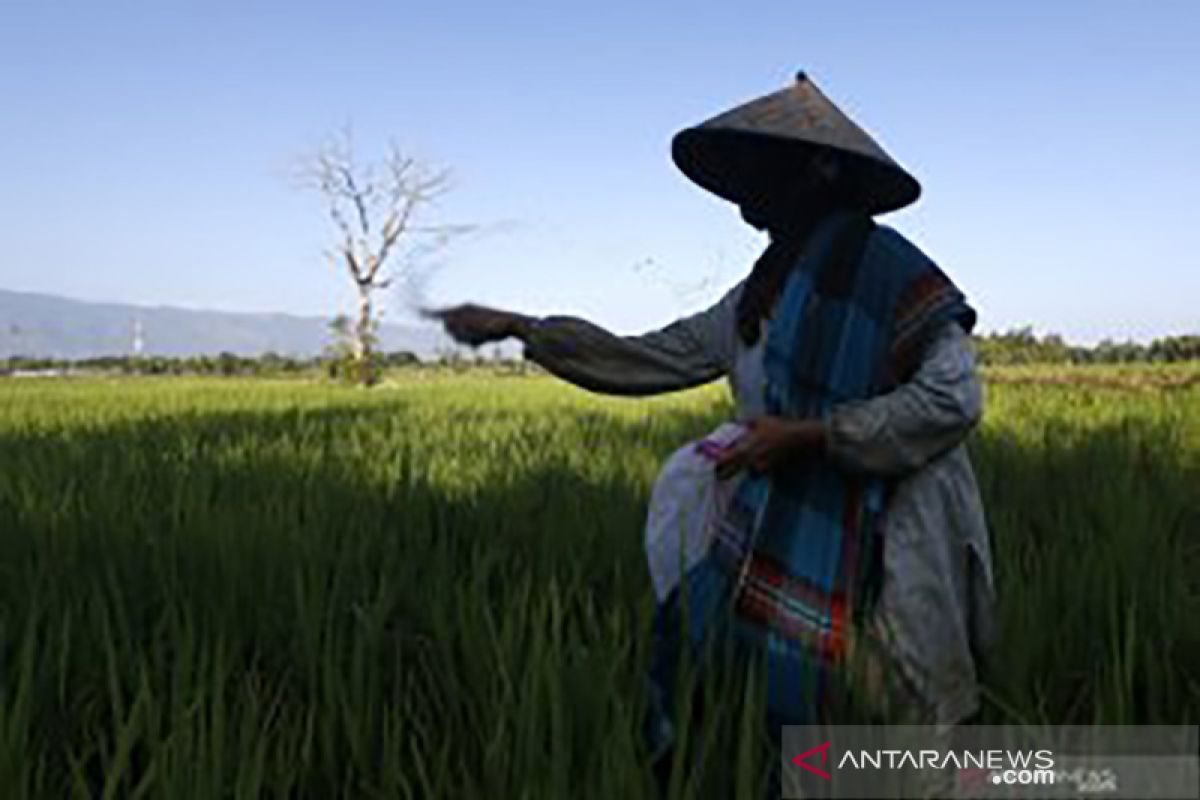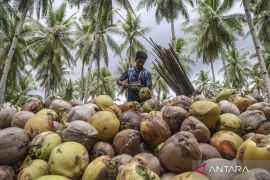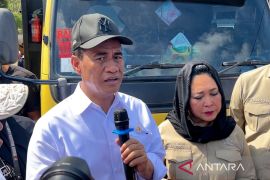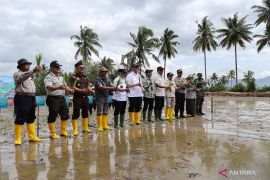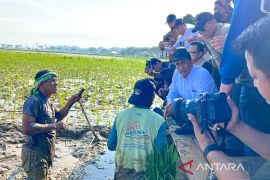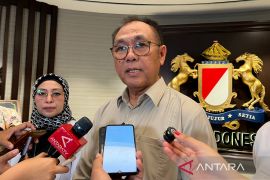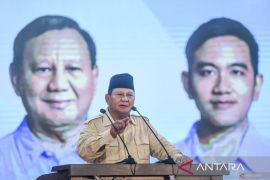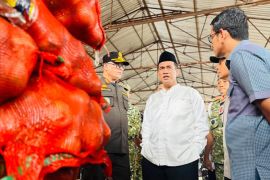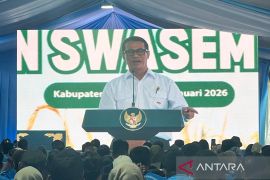FAO representative in Indonesia Rajendra Aryal, in a press briefing on Saturday, said that the ongoing COVID-19 pandemic has triggered a severe economic recession, hampered food access, and affected the entire agriculture and food system.
However, even before the pandemic, hunger had persisted, malnutrition was present in all forms, and the number of people who were hungry had been increasing worldwide, he pointed out.
That situation prompted FAO to celebrate this year's World Food Day with the theme, "Our actions are our future–Better production, better nutrition, a better environment, and a better life”, he said.
The theme was chosen by FAO to address the importance of sustainable agriculture and food systems to build a more resilient world to face the future, he added.
According to the FAO, the world is currently experiencing a great setback in the battle against hunger. Currently, more than three billion people worldwide--almost 40 percent of the world’s total population--do not have access to a healthy diet, it said.
In addition, as many as 811 million people are experiencing malnutrition, and in contrast, two billion adults are overweight or obese due to unhealthy diet and lifestyle, it added.
Data has shown that in Indonesia, the number of obese adults has doubled over the last two decades, and obesity among children is also increasing in the country.
On the other hand, 27.67 percent of children aged under five in Indonesia are experience stunting--chronic malnutrition that interferes with their growth, thereby causing their bodies to grow shorter than others of their age, as per data.
The stunting rate in Indonesia is relatively high when compared to the average rate in the Asian region, the data shows.
The contrasting data highlights that the current agri-food system is unequal and unfair, Aryal said. There is a pressing need for change in systems that include the journey of food from the farmland to the table -- including when it is grown, harvested, processed, packaged, transported, distributed, traded, purchased, prepared, eaten, and disposed of--to more sustainable systems, he added.
Sustainability
Human lives are dependent on the agri-food system, Aryal said.
"Every time we eat, we participate in the system. The food we choose and the way we produce, prepare, cook and store it makes us an integral part of the agri-food system," he added.
A sustainable agri-food system is one in which a variety of nutritious, balanced, and safe foods are available at affordable prices for everyone, he explained. Under such a system, there will be no more people starving or suffering from malnutrition or obesity, he said.
Related news: Agriculture Ministry ensures staple food availability until year-end
The agri-food systems employ one billion people worldwide, more than any other economic sector, he pointed out.
However, the way food is produced, consumed, and disposed of has given negative effects on earth, he added. Unsustainable food production systems destroy natural habitats and contribute to species extinction, he said.
The FAO has established cooperation with the Indonesian government and contributed to ensuring the development of sustainable agri-food in Indonesia, he added.
Since 2019, FAO has been cooperating with the Ministry of National Development Planning (Bappenas) to analyze the national agri-food system and provide several recommendations to improve the capacity of the national sustainable agri-food system, Aryal said.
In addition, the support given by FAO to Bappenas is also realized through the support for the establishment of the National Food Agency, which coordinates matters related to the food agriculture system as well as capacity building related to the planning of the agricultural food system, he added.
Global food security
Earlier on September 18, 2021, Minister of Agriculture, Syahrul Yasin Limpo, had held a meeting with the director general of the Food and Agriculture Organization, Qu Dongyu, on the sidelines of a series of agriculture meetings of G-20 Ministers in Florence, Italy.
At the time, a memorandum of understanding (MoU) had been signed to strengthen South-South and Triangular Cooperation in agriculture and food security, Aryal said.
The MoU signed by the ministers of agriculture and FAO covers various aspects that are expected to resolve existing global problems in agriculture and food security comprehensively and achieve sustainable development goals, he added.
"This agreement is a form of Indonesia's commitment in the agricultural sector to help build global food security as an innovative leader and to share best practices with other stakeholders," he said.
The MoU's signing is expected to further strengthen Indonesia's leadership role in the SSTC framework in the agricultural sector and increase Indonesia's contribution to achieving the 2030 Sustainable Development Goals (SDGs), he noted.
Related news: House Speaker supports millennial farmers in driving agriculture
During the G20 Ministers of Agriculture and Irrigation's meeting, which was conducted in December last year, Agriculture Minister Limpo had said that amid the limitations placed by the COVID-19 pandemic, the Indonesian government has continued to encourage the agricultural sector for creating jobs in rural areas, providing social protection, increasing farmer incomes, and ensuring national food security.
To maintain food availability for all people in the new normal era, the Ministry of Agriculture has so far developed a set of policies called the Four Ways to Act (Empat Cara Bertindak), he said.
The first strategy involves increasing production capacity by accelerating rice planting, converting suboptimal land into agricultural land, and expanding new cultivation areas for strategic commodities, he informed.
The second strategy involves diversifying local food through the development of food diversification based on local wisdom and the use of yards and marginal lands, he said.
The third strategy pertains to strengthening food reserves and logistics systems through the development of food reserves at the provincial and community levels and improving the national food logistics system to stabilize supply and prices, he added.
The fourth strategy involves the development of modern agriculture through the promotion of agricultural mechanization, smart farming, the use of screen houses, food estates, and farmer corporations, he steps.
The steps that have been taken in the agricultural sector have in turn contributed to Indonesia's development for a better agricultural and food system, he added.
Related news: President inaugurates Paselloreng Dam in South Sulawesi
Editor: Rahmad Nasution
Copyright © ANTARA 2021
